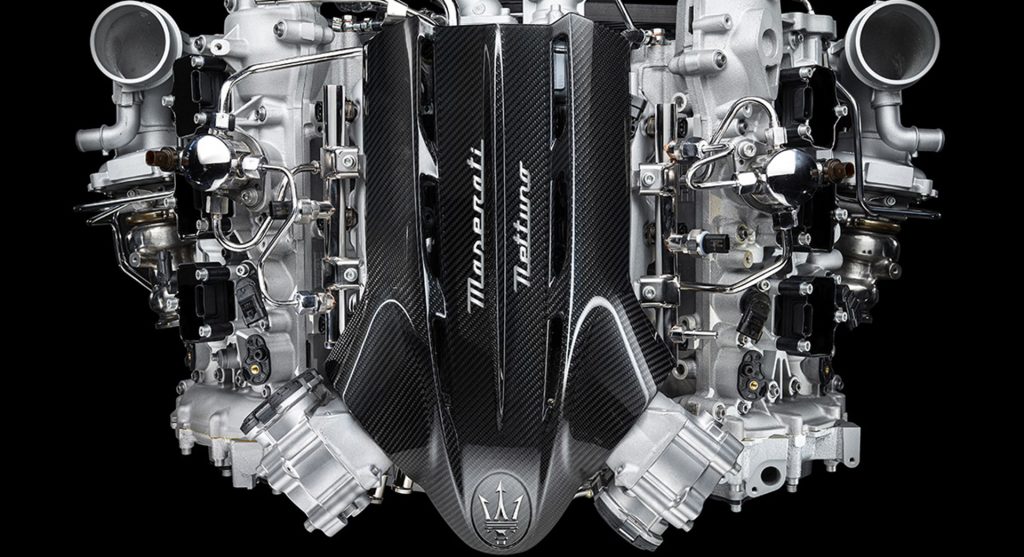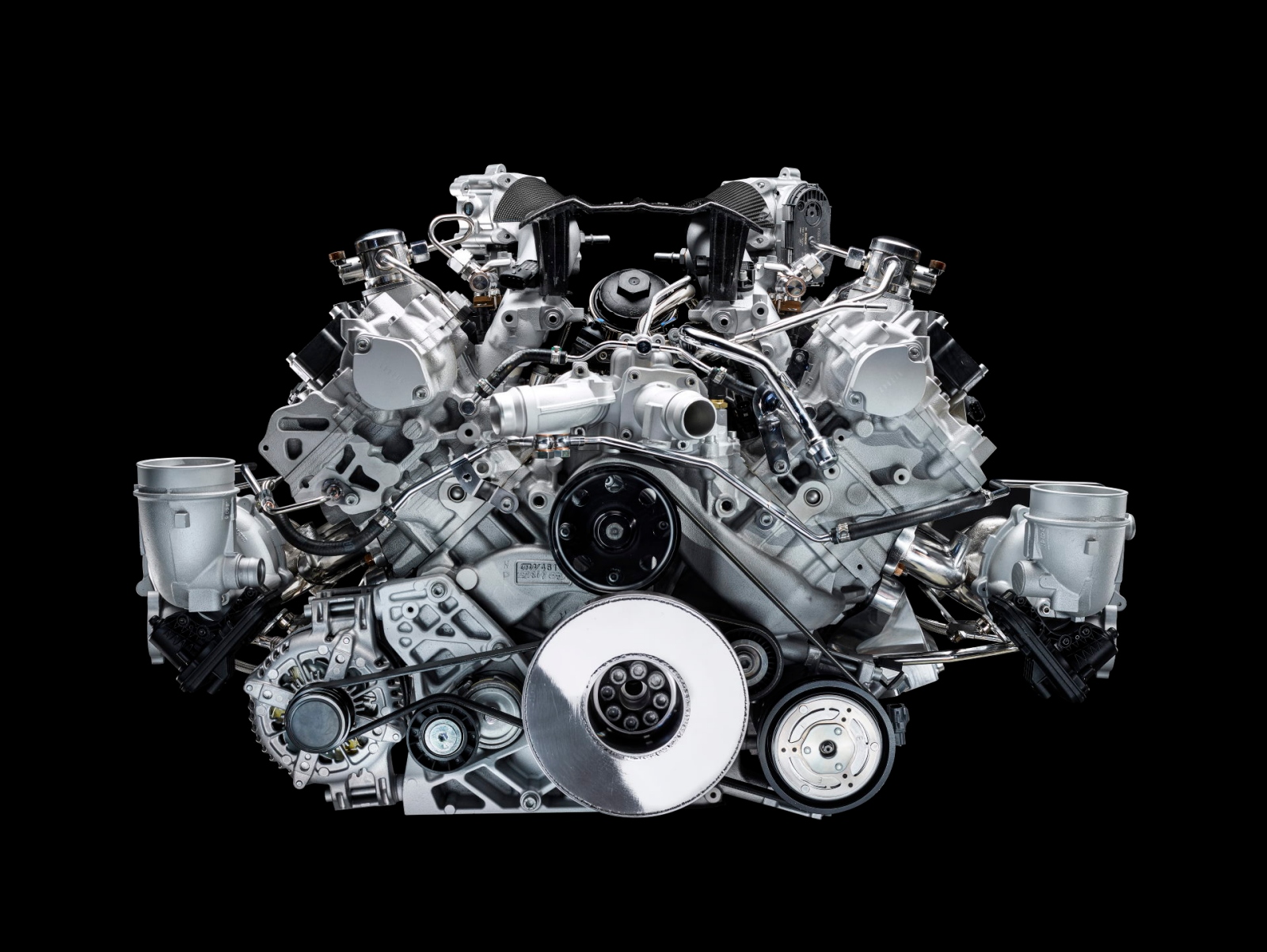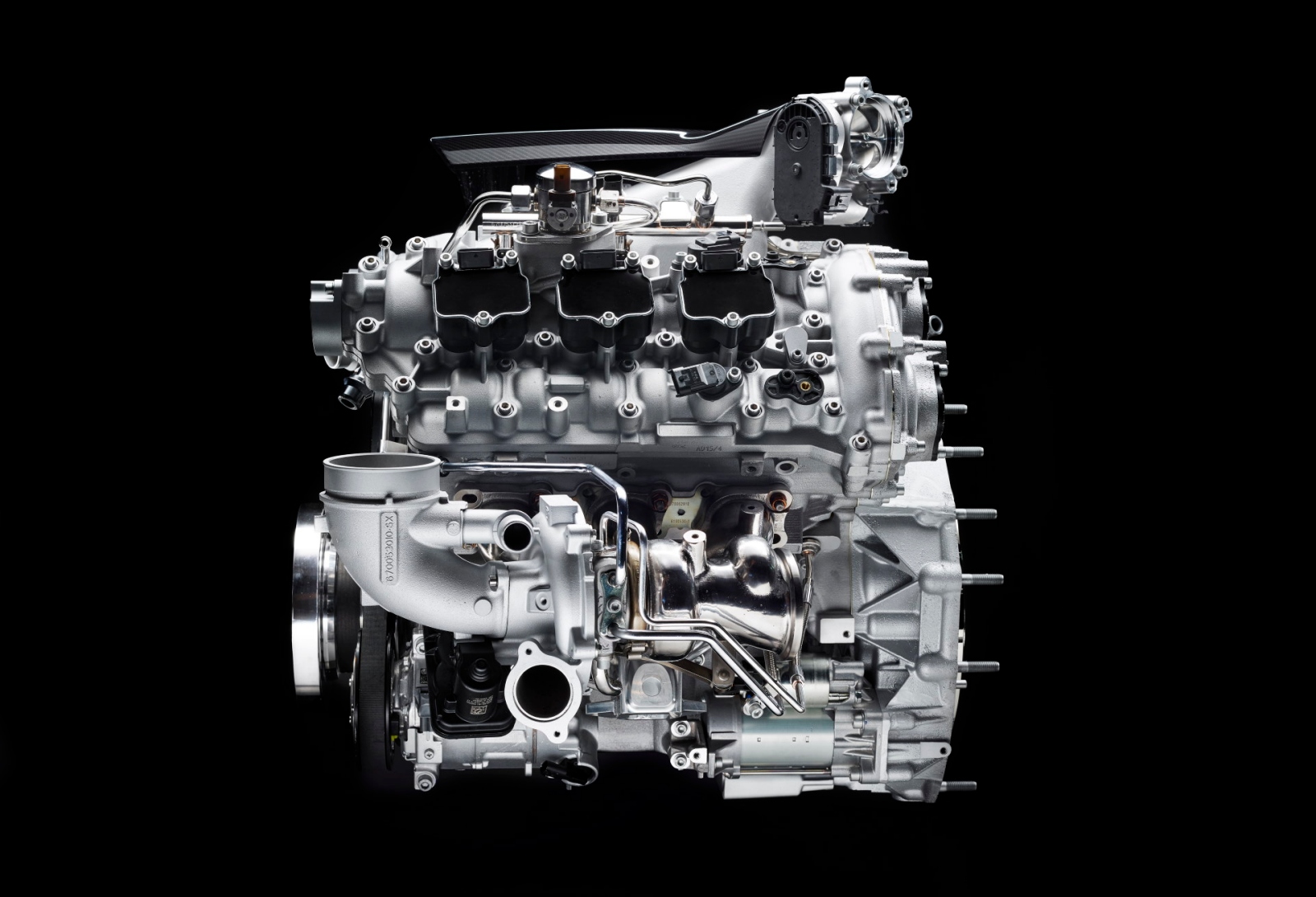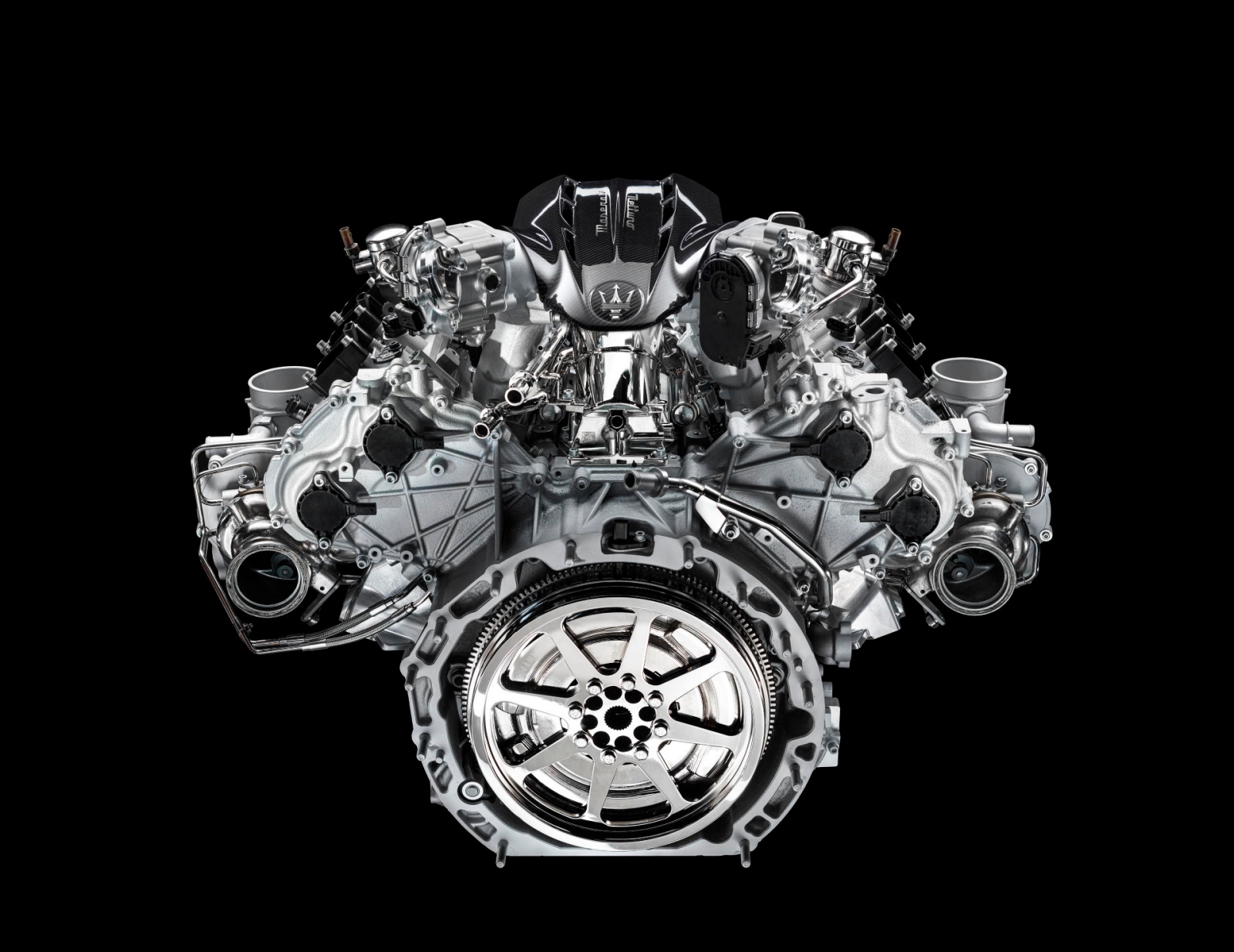Last week, Maserati unveiled a new 3.0-liter twin-turbocharged V6 engine that will power its MC20 supercar. It dubbed the engine “100% Maserati” but that doesn’t appear entirely accurate.
The engine, known as the ‘Nettuno’, weighs less than 485 lbs (220 kg) and is good for 621 HP (630 PS) at 7,500 rpm and 538 lb-ft (730 Nm) of torque from 3,000 to 5,500 rpm. It revs through to 8,000 rpm and Maserati says it uses technology derived from Formula 1. As it turns out, it also uses parts from Ferrari and Alfa Romeo.
While taking a deep-dive into the engine, Road & Track discovered that it shares many similarities with Ferrari’s F154 V8 used by the SF90 Stradale (and other models) and the Alfa Romeo 690T engine used by the Giulia and Stelvio – which itself is essentially just a V6 version of the F154.
Read More: Behold The Maserati MC20’s 621 HP Twin-Turbo 3.0L V6 With F1 Tech
Road & Track notes that the 88 mm bore and 82 mm stroke of Maserati’s Nettuno engine are identical to the F154 and the 8,000 rpm rev limit is the same. In addition, the 1-6-3-4-2-5 firing order of the Nettuno is the same as the Alfa Romeo 690T engine.
When actually looking at the Maserati engine, it has been discovered it has the same bolt pattern and flanges as the Ferrari engine as well as the same crankshaft position sensor and mounting. The oil filter housing and mounting pattern are also shared with the F154 and a match with the engine found in the Ferrari California T. A video released by Maserati showing the cylinder block has also revealed it is identical to the F154 albeit with two fewer cylinders.
Admittedly, there are some things that differentiate the Nettuno from any Ferrari engines. For example, it runs an 11:1 compression ratio and has a new head design developed by Maserati. The engine also sports dual spark plugs and a pre-chamber combustion system that is said to reduce noise low down in the rev range while also improving the fuel consumption and lowering the CO2 emissions.
Of course, it is no surprise the Maserati engine shares many similarities with Ferrari as developing a new engine from the ground-up would have been wildly expensive for the car manufacturer, particularly for a model like the MC20 that likely won’t sell in huge volumes.






